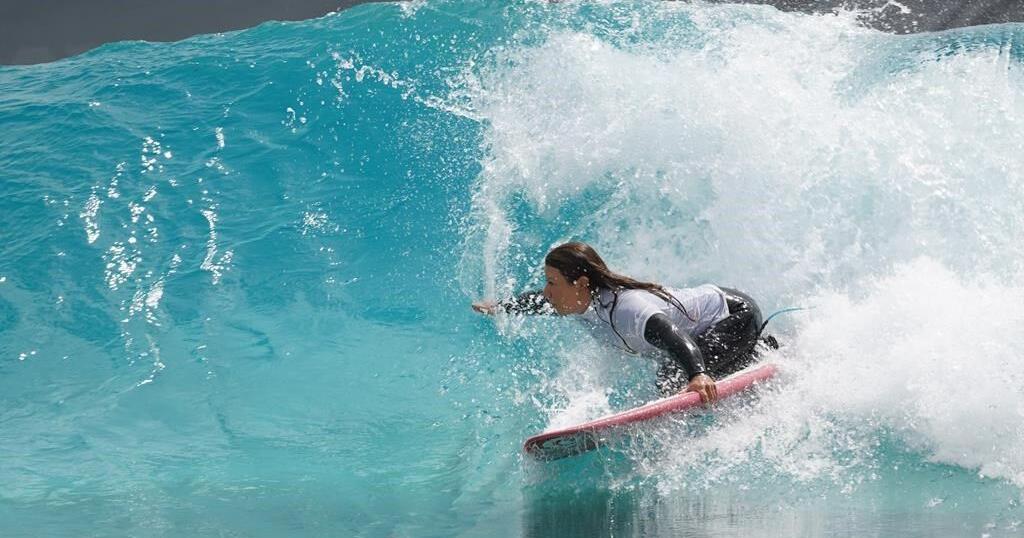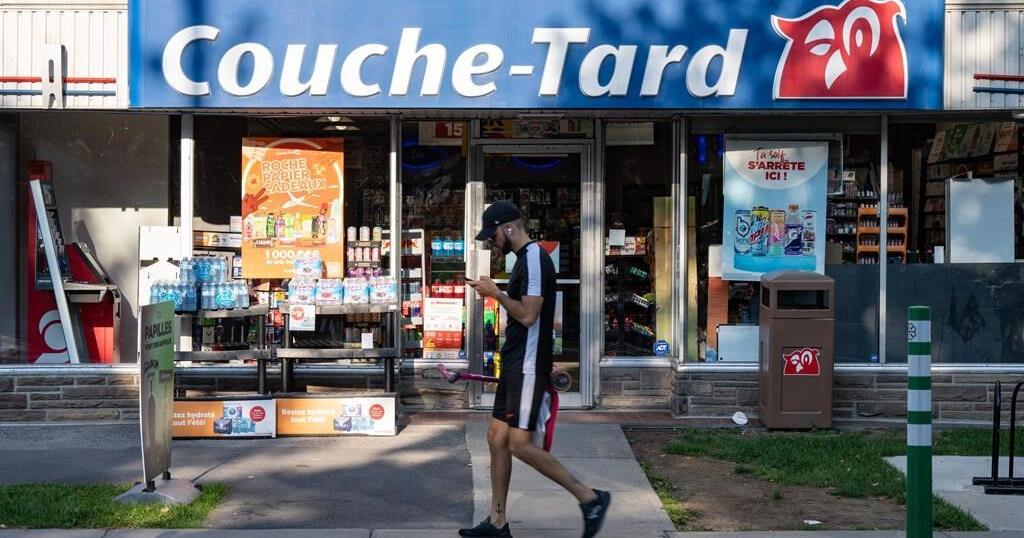PARIS – Surfing is California’s official state sport and Canadian para surfer Victoria Feige wants Los Angeles to live up to that pledge in 2028.
The five-time women’s world champion from Vancouver is at the forefront of a lobby to get L.A. to introduce para surfing to the Paralympic Games.
L.A.’s organizing committee stated in June it would not propose para surfing for inclusion as a new sport in 2028. “Cost and complexity” of the Summer Games was the stated rationale for para surfing’s omission.
That dumbfounded Feige. California has hosted every world para surfing championship since the first in 2015.
“I was devastated,” Feige said. “I have been hearing about the movement toward the Paralympics for para surfing since 2018.
“I won my first world title and I was urine-tested right after according to WADA anti-doping regulations. It felt important, progressive and we had this momentum.”
There are nine para surf classifications encompassing missing limbs, prosthetics, paralysis and visual impairment.
Feige, 39, competes in the women’s kneeling classification. She mistimed a jump while snowboarding in Colorado at age 18. She fractured vertebrae in her spine and was paralyzed below the waist.
“I have been so lucky and grateful to be able to surf again and find a community and compete for my country and reach the highest levels and push my sport forward in ways I never considered,” Feige said.
“While I am in still sort of the prime of my life, I would like to help my sport reach this global stage and I would love to compete for Canada and win the gold for Canada.”
The International Surfing Association has turned its attention to Brisbane in 2032, but Feige isn’t giving up on 2028.
A “Save Paralympic Surfing L.A. 2028” petition started by para surfer Jack Bogle has almost 27,000 signatures.
Feige has appeared in videos with surfing star Kelly Slater and musician Jack Johnson, who have endorsed para surfing for Paralympic inclusion.
She’s planning a California outdoor wave pool event following November’s world championship “as a proof of concept to show that para surfing can be held in L.A. in 2028,” Feige said.
“It’s like a football field and a big hydraulic press that creates a surfable wave on demand,” Feige explained. “It’s standardized and they’ve had surfing pro level competitions there before. I’m wondering if it’s an option to make it more cost-effective and logistically easy to incorporate it into the Games.”
The first world championship in 2015 had 69 competitors from 18 countries.
Each country can enter up to two surfers per classification. The 2023 world championship in Huntington Beach, Calif., had 180 athletes from 27 countries. The number of competitive para surfers internationally is estimated at just under 500, according to Bogle’s petition.
Canada has roughly 25 para surfers classified in seven of the nine divisions, said Surf Canada director Pascale Martineau, who co-founded the organization’s adaptive surfing committee and has been the team’s manager at world championships.
“Worldwide, I feel we did so much work. We have an amazing team working on classification with the ISA,” Martineau said.
“When the news came that the L.A. 2028 organizing committee did not go through with para surfing for the Paralympics because of cost and complexity, it was a big shock. All adaptive sports come with cost and complexity.”
Canadian wheelchair rugby co-captain Trevor Hirschfield, who competed in his fifth Paralympic Games in Paris, gave para surfing a try in 2020 because he wanted an outdoor sport to pursue during the COVID-19 pandemic.
A year later, he was on a board at the world championship in Pismo Beach, Calif., in the prone 2 division, in which athletes require assistance to catch a wave and get on a board safely.
“I’ve been to Paralympics and world championships before and I thought the world para surf championships were amazing,” Hirschfield said. “It was very professional and world-class and I was kind of blown away by it.
“California, L.A. hosting the Games and not picking up para surfing is a big miss on their part.”
Aquatic beach chairs can help surfers with mobility issues get into the water.
“I just crawl,” Feige said. “I push my board beside me. It looks a bit crazy, but it means I can go surfing independently.
“Once I’m in the water, I’m such a good swimmer and paddler, and I taught myself how to duck dive, I’m just as good as anybody else in the water who is able-bodied.”
Feige acknowledged the clock is ticking on her Paralympic dreams, but she wants people with disabilities to see that surfing is possible.
“I really care about bringing more people into the sport, not just for the Paralympics, but it gives so much to be able to access the environment and feel alive,” she explained.
“One of the things I really like about para surfing is there’s no tokenism in the ocean. There’s no special treatment. If you catch a good wave and you surf it well, you did that. It’s very liberating and empowering that way.”
This report by The Canadian Press was first published Sept. 6, 2024.






























